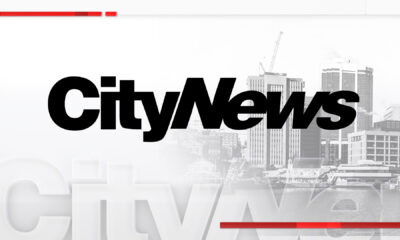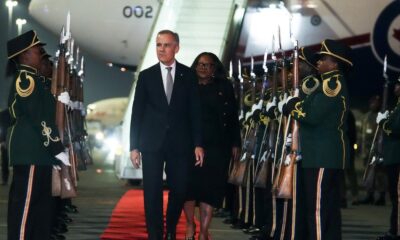Top Stories
France’s Poorest Regions Propel Le Pen’s National Rally Forward

UPDATE: New data reveals a dramatic shift in France’s political landscape, with support for Marine Le Pen’s National Rally surging in the nation’s poorest regions as President Emmanuel Macron’s popularity plummets. This alarming trend poses significant implications ahead of the crucial 2027 elections.
Recent reports confirm that the poverty rate in France has escalated to 15.4%, the highest level in nearly 30 years, as 1.2 million more individuals have fallen below the poverty threshold since Macron’s presidency began in 2017. This economic decline has fueled voter discontent, propelling Le Pen’s party to unprecedented heights.
Mapping data by the Associated Press indicates a strong correlation between increased poverty and National Rally support across four legislative elections since Le Pen took over in 2011. The party, which has evolved from its controversial roots, has become the largest faction in parliament, significantly impacting the political landscape.
While Macron originally aimed to bridge the divide with Le Pen’s supporters, his administration’s focus on business-friendly policies has left many feeling alienated. Critics have labeled him the “president of the rich,” as the divide between wealthier and poorer citizens widens. The 15.4% poverty rate starkly contrasts with the 13.8% rate when he took office.
Le Pen’s rise can be attributed to her refined public persona and a strategic shift in messaging, targeting not just economic grievances but also immigration and national identity. “The French have clearly understood that the ones defending the purchasing power of the working and middle classes are the National Rally,” said Laure Lavalette, a party spokesperson.
The Var region, once a Macron stronghold, has flipped dramatically. National Rally captured seven of eight parliamentary seats in the area during recent elections, reflecting widespread dissatisfaction with economic conditions. Lavalette highlighted the struggles of constituents who report having to “choose between eating or heating.”
Voter sentiment is shifting, with many expressing a willingness to “test-drive” National Rally as an alternative. “We’ve tried everything except the National Rally, so what is the risk?” one local mayor noted, emphasizing the growing appeal of Le Pen’s platform.
With the political climate rapidly evolving, attention turns to Macron’s next steps. As his party grapples with declining support and increasing calls for change, the looming threat of the National Rally continues to hang over his administration. The upcoming elections could redefine France’s political future, with Le Pen positioned to capitalize on the growing discontent.
Stay tuned for further updates as this situation develops. The implications for France’s political landscape could be monumental as voters prepare for the pivotal elections in 2027.
-

 Politics3 weeks ago
Politics3 weeks agoSecwepemc First Nation Seeks Aboriginal Title Over Kamloops Area
-

 World4 months ago
World4 months agoScientists Unearth Ancient Antarctic Ice to Unlock Climate Secrets
-

 Entertainment5 months ago
Entertainment5 months agoTrump and McCormick to Announce $70 Billion Energy Investments
-

 Lifestyle4 months ago
Lifestyle4 months agoTransLink Launches Food Truck Program to Boost Revenue in Vancouver
-

 Science5 months ago
Science5 months agoFour Astronauts Return to Earth After International Space Station Mission
-

 Technology3 months ago
Technology3 months agoApple Notes Enhances Functionality with Markdown Support in macOS 26
-

 Top Stories2 months ago
Top Stories2 months agoUrgent Update: Fatal Crash on Highway 99 Claims Life of Pitt Meadows Man
-

 Lifestyle2 months ago
Lifestyle2 months agoManitoba’s Burger Champion Shines Again Amid Dining Innovations
-

 Sports5 months ago
Sports5 months agoSearch Underway for Missing Hunter Amid Hokkaido Bear Emergency
-

 Politics4 months ago
Politics4 months agoUkrainian Tennis Star Elina Svitolina Faces Death Threats Online
-

 Politics4 months ago
Politics4 months agoCarney Engages First Nations Leaders at Development Law Summit
-

 Technology5 months ago
Technology5 months agoFrosthaven Launches Early Access on July 31, 2025





















